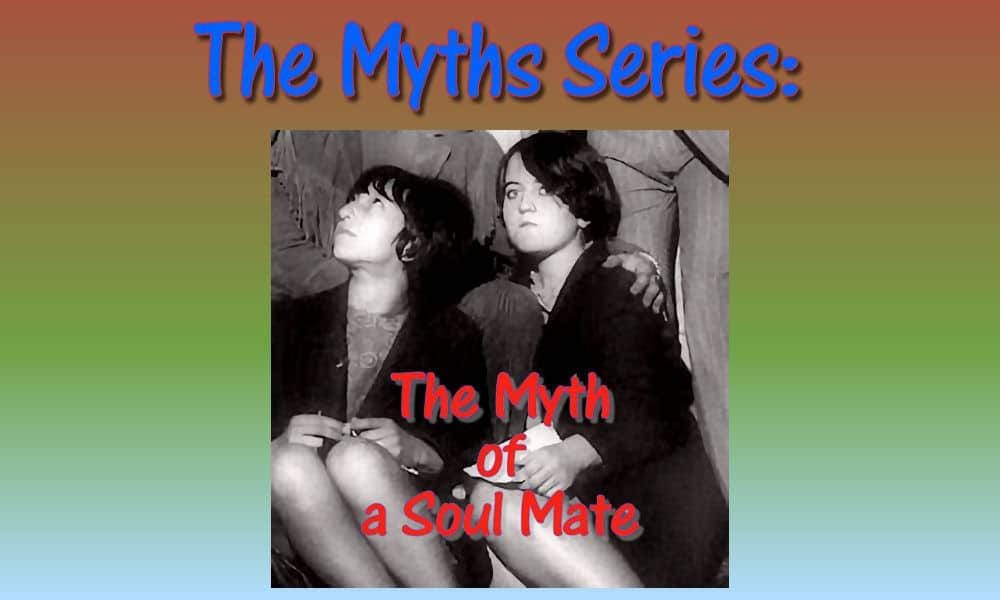- Is-ness: Life is not as it is. Life is as you are — The Myths Series
- The Myth of Absolute Truth — The Myths Series
- The Myth of Right and Wrong — The Myths Series
- The Myth of the Threat of Change — The Myths Series
- Unraveling the Myth of Shoulds — The Myths Series
- The Myth of Fairness — The Myths Series
- The Myth of No Consequences — The Myths Series
- The Myth of Altruism — The Myths Series
- The Myth of Easy — The Myths Series
- The Myth of Scarcity — The Myths Series
- The Myth of Limitations — The Myths Series
- The Myth of a Soulmate — The Myths Series
- The Myth of Sex Equaling Intimacy — The Myths Series
- The Myth of a Self — The Myths Series
- 5 Ideas About Compassion
The Myth of a Soulmate — soulmate thinking is one-sided thinking. Better to find a mirror.
Of Wayne’s many books, the one closest to today’s topic is: This Endless Moment

This Endless Moment
An excellent guide to life and living.
Learn to focus your attention of who you really are.
Purchase all formats from Amazon
Purchase digital versions
(Apple, Nook, Kobo, etc.) from this page
I’m going to be semi-quick with this one.
People have heard of “the soulmate” — the “one perfect person for me” crap–it’s a major movie and book theme, after all–so they frantically run around trying to find this mythic being.
There’s a flaw to this idea, however.
I’ve heard various “takes” on this theme — people describing what they are looking for in a “soulmate” — and every time, what’s actually being said is something I call “placeholder theory.”
Placeholder theory is: “I was late for a meeting, so I (prayed, made an affirmation, etc.) and I drove into the parking lot, and just as I did, someone pulled out!”
That person in the waiting car is what I call a “placeholder.”
Because the story-teller is so important, the other person’s only job is to “wait”… to hold a place for this special, special person.
Oddly, when I suggest to said special person that they too must have been a placeholder for another, “stronger” person, they get right annoyed with me. “Me? A placeholder? That would be… wrong!”
No kidding.
When it comes to soulmate language, if you listen carefully, you’ll discover that the person sought isn’t someone “just perfect,” nor “just right.” The person being sought is “Someone who will do exactly what I want and be exactly who I want them to be.”
In other words, it’s Peter Pan looking for Wendy. Or vice versa.
It’s like Placeholder Theory because the “seeker of the soulmate” is the one in charge, dictating the terms, and the “placeholder” is just supposed to be sitting around, waiting to be found.
A servant, if you will. A foil.
This is not to say that we shouldn’t seek compatibility when engaged in mate-picking.
The List of 50, a tool in my book, Find Your Perfect Partner, is all about this. When you create your list responsibly and without short-cuts, you discover that many people are a fit your temperament and nature.
I guess 5% of the population will fit, once you actually know what you are looking for.
That being said, after you’ve found a “compatibility fit,” the real work of communication and intimacy begins. You can read about that in The. Best. Relationship. Ever.
Not so with the soulmate as described above. That’s not relationship — that’s manipulation.

I knew a woman back in Seminary. When I first met her, she was married to a psychiatrist.
She told me (using “perfect partner” language) that she’d initially been attracted by his good looks, and then by how smart he was. She was excited, as she thought she was really smart — they could actually discuss stuff!
The marriage lasted less then 6 months.
Why did it end? “He argues with me. He was supposed to support me and make me feel good about myself!”
She said that she wanted to find a husband like me: I’d laugh and shake my head, because every time I challenged her — and I do challenge my friends — she’d piss herself right off, and stop talking to me to punish me.
I found the silence refreshing.
That summer she got a job at a camp, and in short order auditioned (the audition being first of dinner, and then between the sheets,) the entire male board of directors, and then the staff, looking for her soulmate (There went through nearly 20 of them…)
None suited her — none were, she told me, suitably compliant and interested in being her soulmate.
But she didn’t give up. She got to the last guy in the place–the janitor–on the last few days of her job. He was perfect, she told me. “He listens to me! He tells me I’m doing great! He praises me endlessly! He’s perfect!”
She married him.
A few years later she showed up on my doorstep, teary-eyed. She’d filed for divorce. Why? “He never has an opinion! All he does is agree with me! He never calls me on my stuff!”
I just smiled.
You see, her version of “male soulmate” is: Does what I want. Builds me up. Agrees with me. Praises me as the smartest person in the room. Endlessly. And without reciprocity on my part.
We’d suggest that the actual purpose of being in relationship is to be with a person who provides a “talking mirror” for what you are doing. Not judgement, not a critique, just “feedback.”
And key to this: you provide this mirroring to your partner, same parameters. No demand for cheer-leading, no “Aren’t you just the most special thing?” Feedback. Compassion. Caring. In dialogue.
As we’ve endlessly said, if your relationships never seem to last, have a look at yourself and your balance.
You only get what you are willing to give.
There are no “special people” in elegant relationships. Partners are not there to make you feel better about yourself, or to do your bidding. True, elegant partners witness both our wholeness and our fragmented-ness — not to fix us, but simply to be a witness.
And vice versa.
Thus, the only “soulmate” I want is someone who agrees that we’ll each work on ourselves first, and will do so through intimate dialogue with each other. We’ll remain curious about each other, without trying to change the other or control the other, and especially without becoming dependent on the other.
My partner is, above all, my equal.
And her name is Darbella.
Are we “soulmates?” Nah. Intimate partners, engaged in intra-personal growth through dialogue. Of course! For 42 years, and counting!
This week, have a look at what you are looking for, or expecting, from your principal relationship. See if you can hold your ego in check long enough to really go for the depth.





